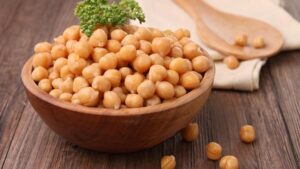Foods rich in collagen

Collagen is a crucial protein that provides structure to your skin, bones, muscles, tendons and ligaments. Although your body naturally produces collagen, incorporating these foods into your diet can help support collagen production and keep your skin, joints, and connective tissues healthy. Additionally, maintaining a balanced diet rich in fruits, vegetables, lean proteins and healthy fats is essential for overall health and well-being, which indirectly supports collagen production and maintenance. Certain foods can support its production or help protect existing collagen.
Citrus Fruits: Oranges, lemons, and grapefruits are rich in vitamin C, a nutrient that promotes collagen production.
Fish: Fish like salmon, tuna, and mackerel are high in omega-3 fatty acids, which can help reduce inflammation and support collagen synthesis.
Dark Leafy Greens: Vegetables like spinach, kale, and Swiss chard are loaded with vitamin C, which is essential for collagen synthesis.
Bone Broth: It’s rich in collagen, as it’s made by simmering animal bones and connective tissue. Consuming bone broth provides your body with the building blocks needed for collagen production.
Berries: Blueberries, strawberries, and raspberries contain antioxidants that help protect collagen from damage caused by free radicals.
Eggs: Egg whites are a good source of proline, an amino acid that is important for collagen production.
Soy Products: Soybeans and tofu contain genistein, a compound that may help block enzymes that break down and age collagen.
Nuts and Seeds: Almonds, sunflower seeds, and pumpkin seeds are high in zinc, which is essential for collagen production and wound healing.
Bell Peppers: These vegetables are rich in vitamin C, which is crucial for collagen synthesis.
Tomatoes: Tomatoes contain lycopene, an antioxidant that may help protect collagen from damage caused by UV rays and other environmental factors.
As you age, your body’s natural production of collagen begins to decline, which can lead to signs of aging such as wrinkles, joint pain, and reduced muscle mass. However, lifestyle factors such as diet, exercise, and skincare can influence collagen production and help support its maintenance.




